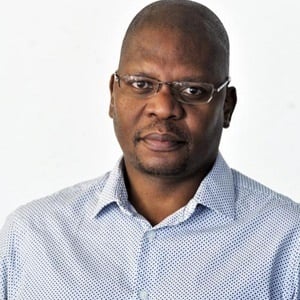
Watching the bitter fight over the nomination of Brett Kavanaugh to the US Supreme Court and the vicious battle of Brexit taking place in the UK, one can’t but marvel at the levels of toxicity in world politics.
You move to Brazil, where a leading presidential hopeful has been campaigning from a hospital bed after he was stabbed on the hustings.
In the Philippines, citizens are crossing their fingers that their president’s widely publicised medical tests will indicate that he has advanced cancer.
In Uganda, toxicity has risen to ridiculous levels as security brought traffic to a standstill in downtown Kampala and screened people in preparation for the paranoid president’s visit to the central business district, so afraid is he of his own people.
Hop around the world and you will find similar tales of political rivals who are unable to work together for the common good and who do not realise that being on opposite sides does not make you enemies.
You will find political elites who fuel hatred and revel in polarising society; you will find leaders who mete out cruelty at a whim.
Then you come to our 24-year-old republic, which schizophrenically swings from depression to exhilaration in a matter of seconds.
The stink and dysfunction of the Jacob Zuma years made us forget that, as young as we are as a nation, our maturity is greater than our years.
This week, at a Land Indaba co-hosted by City Press and our sister newspaper Rapport, people from all walks of life came together to grapple with the contentious issue that has divided South Africa over the past 12 months.
READ: 200 years. R600bn. And that’s just what it will take for current land claims
There were people at the indaba who had nothing in common, as well as people you’d assume would not drink from the same tap.
Now, this lowly newspaperman is not the syrupy type who is given to giddy feelings.
We, the disciples of the annihilating and vanquishing force called Orlando Pirates Football Club, are not known for softness.
But there are moments that force us to let our guard down just a little. On Wednesday, I experienced one of those moments.
The land question is necessarily a difficult and divisive issue in our country.
The wars of dispossession – “the original sin” as President Cyril Ramaphosa calls it – left indelible scars on the souls of the people of this country.
The legislating of dispossession early last century made it worse. South Africa’s struggle for liberation may not have centred on land, per se, as was the case in some other African countries, but the “return of the land” was all over the freedom songs.
In post-1994 South Africa, land restitution, land reform and land redistribution were ostensibly priorities for the new order. But, as we all know, very little has been done. This inaction has come back to haunt us.
With the Economic Freedom Fighters having made it their ideological trump card and with opportunists in the governing party using it to exploit people’s emotions, the land question has dominated discourse this year.
And what ugly and coarse discourse it has been. This has been the single most divisive issue in the post-apartheid era, and one that has threatened to derail South Africa’s nation-building project.
Wednesday was not a departure from this – the conversation was still hard and harsh, but it was practical and forward-looking. The visions and solutions were still widely divergent, but the ears were open.
Away from the historical, political and ideological divergences, there was a recognition of the common enemies – among them poverty, inequality, intolerable living conditions, apartheid-era spatial planning, climate change, stunted economic growth and social ills.
A civilised conversation was had by all, including the political parties that are usually at each other’s throats.
As South Africans, we should give ourselves credit that, as robust and brawny as our national conversation can be, we do it better than many societies that consider themselves to be more settled and mature than us.
The land conversation has been the biggest test to common nationhood and cohesion; it has made us ask ourselves and each other about the concept of belonging to South Africa and owning South Africa.
As mentioned earlier, this has not been a sweet conversation in which people’s feelings have been protected.
It has been as hard as it can get. We have no idea what the outcome of this process will be.
Most likely, there will be no outright victors or losers in the end, but we will have begun to deal with the most difficult issue early on in the life of the republic.
It would have been better if this conversation had been conducted in a much more orderly way from the beginning, and if self-serving opportunists like Zuma had not been allowed to hijack it.
It would have been better if there had not been the level of defensiveness on the part of those who deny the past. It would have been better if the insults and invective were less biting.
But those are all wishes. We are here and we are having this conversation.
Wednesday was proof that, in the midst of all the swearing and accusations, South Africans can talk to each other and hear each other.
There is a lot wrong with our country – corruption, a culture of impunity, lawlessness, racism, poverty and moral decay.
But we are talking to each other. We’ll be okay.




 Publications
Publications
 Partners
Partners








